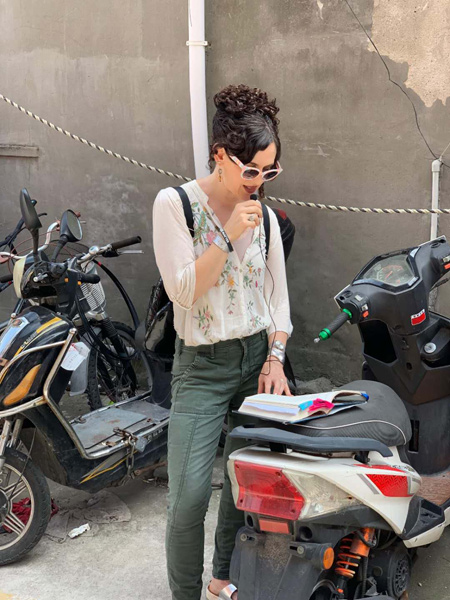Creating hope in a wartime city
By Jocelyn Eikenburg | China Daily | Updated: 2019-06-21 09:11

The title Someday We Will Fly, which echoes Lillia's circus performances, emerged in response to what DeWoskin says is Lillia's "desperate desire to have a view of her own life that offers some possible future escape from the constraints of war. She wants, as I think we all do, to transcend her circumstances".
As part of her research, DeWoskin spent seven summers living in the neighborhood Jewish refugees called home, in the Embankment Building, which once served as a processing center for refugees arriving in Shanghai. This helped the author feel more anchored in what it would have been like in the 1940s.
Shanghai was no exception to how miserable life in occupied cities can be.
"Disease was rampant, and poverty was everywhere, yet the resilience and courage demonstrated regularly by Chinese citizens and refugees alike were remarkable."
People ran businesses, opened shelters, created lending libraries and schools, made art, music and literature, and crafted toys for children, she says.
"The cultural output from that era is astonishing. Of course the ways people survive are numerous and often surprising, and the expressions of the lives they led took many forms, including poetry, fiction, visual art and music. Hope is often naturally derived from both the creation and the appreciation of such expressions."
DeWoskin reflects that resilience through Lillia, who makes puppets for her circus out of trash and forgotten objects she encounters around Shanghai.
























